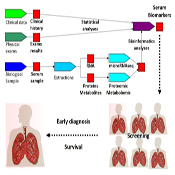Mens X Machina
Our softwareRecent News
-
Prof. Tsamardinos was awarded with the European Research Council, Proof of Concept grant award in 2021
22 Jun , 2022The European Research Council, Proof of Concept was awarded to Professor Tsamardinos in 2021
-
Best paper award from the 37th BDA 2021 conference in the National French conference on Data Management For the article: “On Predictive Explanation of Data Anomalies”, Myrtakis, N., Tsamardinos, I., & Christophides
22 Jun , 2022Best paper award from the 37th BDA 2021 conference in the National French conference on Data Management For the article: “On Predictive Explanation of Data Anomalies”. The authors of the article are Myrtakis Nikos, Tsamardinos Ioannis and Christophides Vassilis.
-
Open positions available – CALLS FOR EXPRESSION OF INTEREST
18 Jul , 2019Several contractual positions are open at the MensXMachina research group. Our group is highly multi-disciplinary and multi-national focusing on data analysis and machine learning with an emphasis on biomedical data. Our scientific goals mainly revolve around: (a) the basic research on causal discovery, causal analysis, and causal modeling, (b) the design of automated machine learning
-
ASCO Annual Meeting
11 May , 2019Prof. Tsamardinos will attend the ASCO Annual Meeting, taking place May 31 – June 4, 2019, at the McCormick Place Convention Center in Chicago, Illinois, where his recent scientific work produced in collaboration with Oluf D. Roe from NTNU will be presented. https://meetings.asco.org/am/register-submit-abstracts
Our Team

John Fotopoulos
Technical Staff
Department of Computer Science, University of Crete, Hellas
Publications
Read moreAbout Us
Mens Ex Machina, Mind from the Machine or “Ο από Μηχανής Νους” paraphrases the latin expression Deus Ex Machina, God from the Machine. The name was suggested by Lucy Sofiadou, Prof. Tsamardinos’ wife.
We are a research group, founded in October 2006, led by Professor Ioannis Tsamardinos, interested in Artificial Intelligence, Machine Learning, and Biomedical Informatics and affiliated with the Computer Science Department of University of Crete. The aims of the group are to progress science and disseminate knowledge via educational activities and computer tools. Our group is involved in
Research:
Theoretical, algorithmic, and applied research in all of the above areas; we are also involved in interdisciplinary collaborations with biologists, physicians and practitioners from other fields.
Education:
Educational activities, such as teaching university courses, tutorials, summers schools, as well as supervising undergraduate dissertations, masters projects, and Ph.D. theses.
Systems and Software:
Implementation of tools, systems, and code libraries to aid the dissemination of the research results. Funding is provided from and through the University of Crete, often originating from European and International research grants.
Current research activities include but not limited to the following:
- Causal discovery methods and the induction of causal models from observational studies. Specifically, we have recently introduced the problem of Integrative Causal Analysis (INCA).
- Feature selection (a.k.a. variable selection) for classification and regression.
- Induction of graphical models, such as Bayesian Networks from data.
- Analysis of biomedical data and applications of AI and Machine Learning methods to induce new biomedical knowledge.
- Activity recognition in Ambient Intelligent environments.
Ioannis Tsamardinos
Professor, Department of Computer Science, University of Crete














